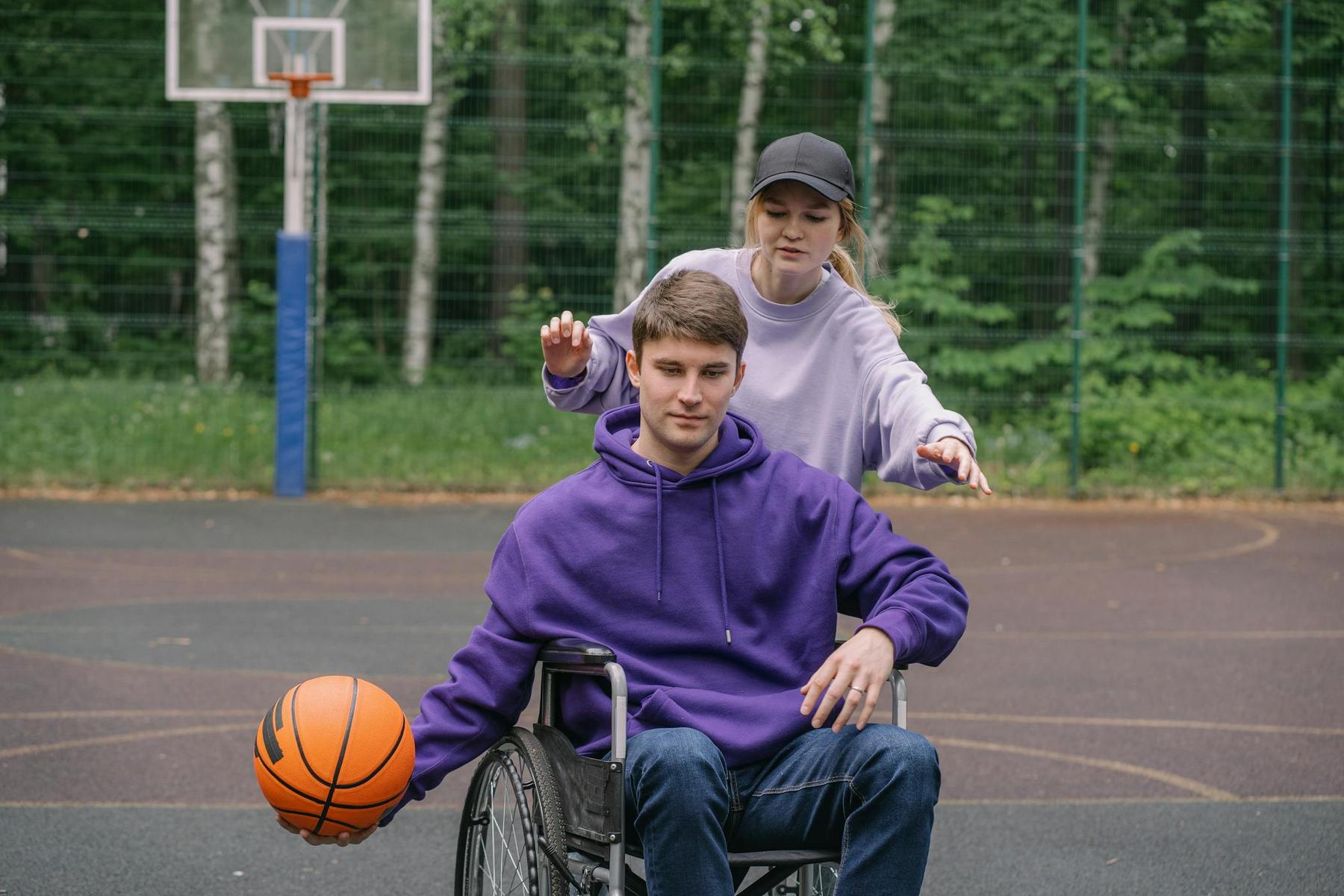Brisbane’s vibrant multicultural landscape tells a story of incredible diversity, resilience, and community strength. With over 220 languages spoken across Queensland and 36% of Brisbane’s metropolitan area being foreign-born, our city represents one of Australia’s most culturally rich environments. Yet beneath this celebration of diversity lies a concerning reality: thousands of individuals from culturally and linguistically diverse (CALD) backgrounds who live with disabilities are struggling to access the support they desperately need through the National Disability Insurance Scheme (NDIS).
The statistics paint a troubling picture of exclusion. While Brisbane’s multicultural communities make up a significant portion of our population, only 5.4% of Queensland NDIS participants identify as being from CALD backgrounds—a figure that should realistically sit closer to 21.9% to truly reflect our demographic reality. This isn’t just about numbers on a spreadsheet; it represents real families navigating complex systems without adequate support, individuals whose cultural identity becomes a barrier rather than a strength, and communities where disability remains shrouded in stigma and misunderstanding.
For families who have already overcome incredible challenges—fleeing conflict, learning new languages, rebuilding lives in unfamiliar territory—the additional burden of navigating Australia’s disability support system can feel insurmountable. The intersection of cultural identity, linguistic diversity, and disability creates layers of complexity that traditional service models have struggled to address effectively.
What Are the Current NDIS Participation Rates Among Brisbane’s Multicultural Communities?
The stark disparity between Brisbane’s multicultural demographic composition and NDIS participation rates reveals one of the most significant equity challenges facing disability services in our region. Current data shows a profound underrepresentation that cannot be explained by lower disability prevalence among CALD communities, pointing instead to systemic barriers that prevent equitable access to support.
| Demographic Indicator | Brisbane/Queensland Reality | NDIS Participation | Gap |
|---|---|---|---|
| Foreign-born population | 20.7% of Brisbane residents | 5.4% of QLD NDIS participants | 15.3% underrepresentation |
| Expected CALD participation | 21.9% based on demographics | 5.4% actual participation | 16.5% participation deficit |
| Language diversity | 220 languages spoken in QLD | Limited language support available | Significant service gap |
| Cultural concentration | High density in specific suburbs | Scattered service availability | Geographic mismatch |
This underrepresentation becomes even more concerning when we consider Brisbane’s specific multicultural geography. Areas like Sunnybank, Sunnybank Hills, and surrounding suburbs house large populations from China, Taiwan, and Hong Kong, while Vietnamese-born residents concentrate in Inala, Darra, and Durack. Indian-born populations cluster around Chermside, creating distinct cultural enclaves that require targeted, culturally responsive service approaches.
The measurement challenges themselves reflect systemic issues within NDIS data collection. The scheme’s definition of CALD participants—focusing on country of birth and primary language spoken at home—may not capture second-generation migrants or individuals who speak English fluently but maintain strong cultural connections. This potentially leads to further underestimation of the true CALD participant population, masking the full extent of underrepresentation.
Geographic clustering patterns create additional complexity for service planning and delivery. When specific cultural groups concentrate in particular suburbs, the demand for culturally appropriate services becomes concentrated as well. However, traditional service distribution models may not account for these patterns, leaving some areas with high CALD populations significantly underserved while resources remain scattered across broader metropolitan areas.
What Barriers Prevent CALD Communities from Accessing NDIS Support in Brisbane?
The journey toward NDIS access for multicultural families involves navigating a complex maze of interconnected barriers that operate at individual, cultural, and systemic levels. Language represents the most visible challenge, but the reality extends far beyond simple translation needs into fundamental questions about how disability support systems can accommodate diverse cultural worldviews and practices.
Communication barriers permeate every aspect of the NDIS experience, from initial applications through to plan reviews and service delivery. Many CALD individuals and families encounter information that has been translated into some languages but not others, creating particular disadvantages for emerging communities and recent refugee arrivals. The complexity deepens when we consider that some individuals seeking services may have received limited formal education in their countries of origin, making even translated materials difficult to navigate.
Cultural attitudes toward disability and help-seeking create profound challenges that extend beyond language into the realm of cultural identity and family honour. Many CALD communities hold strong beliefs about family responsibility for caring for members with disabilities, viewing external support as potentially shameful or indicating family failure. These perspectives aren’t simply cultural preferences to be overcome—they represent deeply held values about family solidarity, community support, and personal dignity that must be respected and integrated into support approaches.
The NDIS planning process itself presents significant cultural barriers through its emphasis on individual goal-setting and self-advocacy. The formal interview structure, with its requirement for participants to articulate personal goals and advocate for specific supports, can be culturally inappropriate for communities that prioritise collective decision-making or defer to elder authority. This Western-oriented approach to disability planning may inadvertently exclude participants whose cultural frameworks approach support and independence through different conceptual lenses.
Systemic challenges within NDIS structures compound these individual and cultural barriers, creating institutional obstacles that disproportionately affect CALD communities. The scheme’s emphasis on participant choice and self-direction assumes system knowledge and advocacy capacity that may not exist among newly arrived migrants or communities with limited experience navigating Australian bureaucratic systems. Even when CALD participants successfully access NDIS funding, they often struggle to find providers who can deliver culturally competent support that respects cultural practices, dietary requirements, religious observances, and family dynamics.
How Are Specialised Services Addressing Multicultural NDIS Needs in Brisbane?
Brisbane’s response to multicultural NDIS challenges has generated an innovative ecosystem of specialised service providers who combine cultural competency with disability expertise. These organisations represent a new generation of support services that recognise cultural responsiveness as fundamental to effective disability support rather than an optional add-on.
ARMIA exemplifies this holistic approach, operating as a registered NDIS provider while simultaneously delivering community engagement programs, educational support, and employment initiatives. Their philosophy of “teaching people to fish” rather than simply providing support acknowledges that sustainable community development requires building capacity and reducing long-term dependency. This approach recognises that disability support cannot be separated from broader settlement and integration challenges facing many CALD families.
Fortify Health Group addresses critical gaps in multicultural mental health support through their targeted services for individuals from culturally and linguistically diverse backgrounds aged 16 to 65 years. Their funding through Brisbane South Primary Health Network and Queensland Health demonstrates government recognition that mainstream mental health services may not adequately serve CALD communities. The program’s emphasis on culturally appropriate delivery and interpreter provision acknowledges that effective mental health support requires deep understanding of cultural contexts and community-specific approaches to psychological wellbeing.
abbaCare Brisbane North has developed a specialised multicultural support model that prioritises cultural compatibility in care planning and service delivery. Their approach focuses on developing care plans that align with participants’ community affiliations while remaining open to exploring issues from participants’ cultural perspectives. The organisation emphasises communication in participants’ languages, respect for cultural food preferences, honour for traditions and beliefs, and sensitivity to individuals’ life journeys.
The development of culturally diverse workforce profiles represents a critical component of specialised service delivery. Carers Queensland demonstrates this approach through their workforce composition, which includes highly skilled local area coordinators with personal experience of living with disability, having caring responsibilities, being part of diverse communities, or identifying as Aboriginal and/or Torres Strait Islander. This diversity ensures participants can access support from individuals who share cultural backgrounds or understand the intersection of disability with other forms of diversity.
What Government Initiatives Are Improving NDIS Access for Multicultural Communities?
The Australian government’s recognition of systemic barriers facing CALD communities has culminated in comprehensive policy responses designed to address both immediate access challenges and longer-term structural inequities. The National Disability Insurance Agency’s CALD Strategy 2024-2028 represents the most significant government initiative aimed at improving NDIS accessibility and cultural responsiveness for multicultural communities.
This strategy emerged from extensive co-design processes involving over 800 people from CALD backgrounds, including participants, families, carers, peak bodies, and NDIS staff. The collaborative approach addresses historical concerns that disability policy has been developed without meaningful input from affected communities, particularly those facing multiple forms of disadvantage based on disability, cultural background, and linguistic diversity.
The strategy proposes implementation of 28 specific actions over four years, targeting systemic barriers that have historically prevented equitable access to NDIS supports. These actions address critical areas including planner guidance and cultural competency, interpreter service improvements, collaboration with quality and safeguards frameworks, community awareness initiatives, and evidence-based decision making through improved data collection.
Specific policy initiatives within the CALD Strategy demonstrate sophisticated understanding of complex barriers facing multicultural communities. The commitment to providing better guidance to planners acknowledges that cultural competency among NDIS staff represents a critical success factor. The review of processes for NDIS meetings with interpreters, including provisions for longer meetings, preferred interpreters, and in-person interpreting services, demonstrates recognition that effective communication requires more than basic translation services.
The strategy’s emphasis on community-led awareness and stigma reduction initiatives represents acknowledgment that sustainable change requires community engagement beyond individual service provision. The commitment to identifying, developing, and supporting activities from community organisations that promote NDIS awareness and reduce disability stigma in CALD communities recognises that cultural change requires community ownership and grassroots leadership.
What Does the Future Hold for Multicultural NDIS Support in Brisbane?
The evolution of NDIS support for Brisbane’s multicultural communities requires sustained commitment to systemic change that addresses both immediate access barriers and longer-term cultural transformation within disability service systems. Current evidence suggests that while specialised services and targeted initiatives have made important contributions, achieving equitable participation requires fundamental shifts in how the NDIS conceptualises and delivers support to culturally diverse communities.
The expansion of culturally competent workforce development emerges as a fundamental requirement for sustainable improvement. Current approaches that rely on specialised multicultural providers, while valuable, cannot achieve the scale required to serve Brisbane’s diverse multicultural population effectively. Future directions must include systematic cultural competency development across the entire NDIS workforce, from planners and support coordinators to direct support workers and administrative staff.
Technology and digital innovation present significant opportunities to address systemic barriers facing CALD communities, particularly around language access and cultural matching of services. Future developments might include sophisticated translation and interpretation platforms that go beyond basic language conversion to include cultural context and disability-specific terminology. Digital platforms could facilitate better matching between CALD participants and culturally appropriate services, addressing current challenges where participants may be unaware of available culturally competent providers.
The development of culturally specific quality assurance and outcomes measurement frameworks represents another critical area for future advancement. Current NDIS quality frameworks may not adequately capture culturally specific indicators of successful support delivery or participant satisfaction. Future developments should include co-designed quality indicators that reflect CALD community values and priorities, potentially including measures of cultural safety, family satisfaction, community integration, and maintenance of cultural connections.
System-level data collection and analysis capabilities require significant enhancement to support evidence-based policy development and service improvement for CALD communities. Future directions should include sophisticated data analytics that can identify disparities, predict service needs, and evaluate intervention effectiveness across different cultural and linguistic groups while maintaining appropriate privacy protections.
Building Bridges Toward Inclusive Support
The landscape of NDIS support in Brisbane’s multicultural communities reveals a story of persistent challenges and emerging hope. While the current underrepresentation of CALD communities in NDIS participation highlights significant systemic barriers, the innovative responses from specialised service providers, community-led initiatives, and comprehensive government strategies point toward more equitable and culturally responsive disability services.
The complexity of barriers facing CALD communities extends far beyond language translation to encompass cultural attitudes toward disability, unfamiliarity with Australian service systems, and systemic biases within NDIS structures. However, successful interventions demonstrate that addressing these challenges requires holistic approaches that integrate cultural competency with disability expertise, engage community leaders and peer networks, and recognise the intersection of disability with broader settlement and integration challenges.
Moving forward, the sustainability of improvements in NDIS accessibility for Brisbane’s multicultural communities will depend on maintaining community engagement in policy development, expanding culturally competent workforce capacity across the entire disability sector, and developing sophisticated approaches to quality assurance that reflect diverse cultural values and priorities. The success stories emerging from community-led initiatives and specialised service providers prove that culturally responsive disability support is both possible and effective when grounded in authentic community partnership and comprehensive understanding of multicultural experiences.
The journey toward truly inclusive NDIS support requires ongoing commitment from government, service providers, and communities themselves. As Brisbane continues to grow as one of Australia’s most culturally diverse cities, the imperative to create disability support systems that serve all community members with dignity, respect, and cultural safety becomes ever more critical. The foundation for this transformation exists—now it requires sustained effort, adequate resources, and unwavering commitment to equity and inclusion.
What languages are NDIS services available in throughout Brisbane?
The NDIS provides interpreter services in over 220 languages spoken across Queensland, though availability varies by provider and service type. While telephone interpreters can be arranged for planning meetings and reviews, in-person interpreting services are available for more complex discussions. Many specialised CALD service providers in Brisbane offer direct support in community languages including Mandarin, Cantonese, Vietnamese, Arabic, Somali, and various African languages. It’s important to request interpreter services in advance and specify if you prefer a particular gender or have cultural requirements for the interpreter.
How can multicultural families in Brisbane find culturally appropriate NDIS providers?
Multicultural families can access culturally appropriate NDIS providers through several pathways. Local Area Coordinators at organisations like Carers Queensland hold regular multicultural community sessions where families can learn about available services and meet providers. The NDIS provider finder allows searching by language and cultural specialisation, though families should directly contact providers to discuss their specific cultural needs. Community organisations like ARMIA, Choice Disability Services, and abbaCare Brisbane North specifically advertise their multicultural expertise and can provide referrals to other culturally competent providers in their networks.
What cultural considerations do NDIS planners take into account during planning meetings?
Under the CALD Strategy 2024-2028, NDIS planners receive enhanced guidance on cultural considerations including understanding how different communities approach independence, family decision-making processes, and disability concepts. Planners should accommodate extended family participation in planning meetings, allow extra time for cultural explanations and interpreter services, and recognise that goal-setting may need to reflect collective rather than individual priorities. Families can request planners with cultural background knowledge or ask for planning meetings to be conducted with community liaison workers present to ensure cultural contexts are properly understood and respected.
Are there specific NDIS funding categories for culturally responsive support services?
While the NDIS doesn’t have separate funding categories specifically for cultural services, culturally responsive support can be funded under existing categories including Core Support, Capacity Building, and Capital Support. Support coordination can include assistance finding culturally appropriate providers and navigating cultural barriers to service access. Capacity building supports can fund cultural competency training for support workers or community participation activities that maintain cultural connections. Some participants may be eligible for specialist behaviour support or mental health services that specifically address cultural trauma or settlement-related challenges alongside disability support needs.
How does the NDIS handle religious and cultural practices in support planning?
The NDIS recognises participants’ rights to maintain their cultural and religious practices as part of their support planning. This includes accommodating prayer times, dietary requirements, modesty considerations, and gender preferences for support workers. Reasonable and necessary supports can include assistance accessing culturally appropriate community activities, religious observances, and cultural celebrations. Support plans should reflect how cultural and religious practices contribute to participants’ wellbeing and community connection. Participants can request that their cultural and religious needs be documented in their plans and communicated to all service providers to ensure consistent, respectful support delivery.



